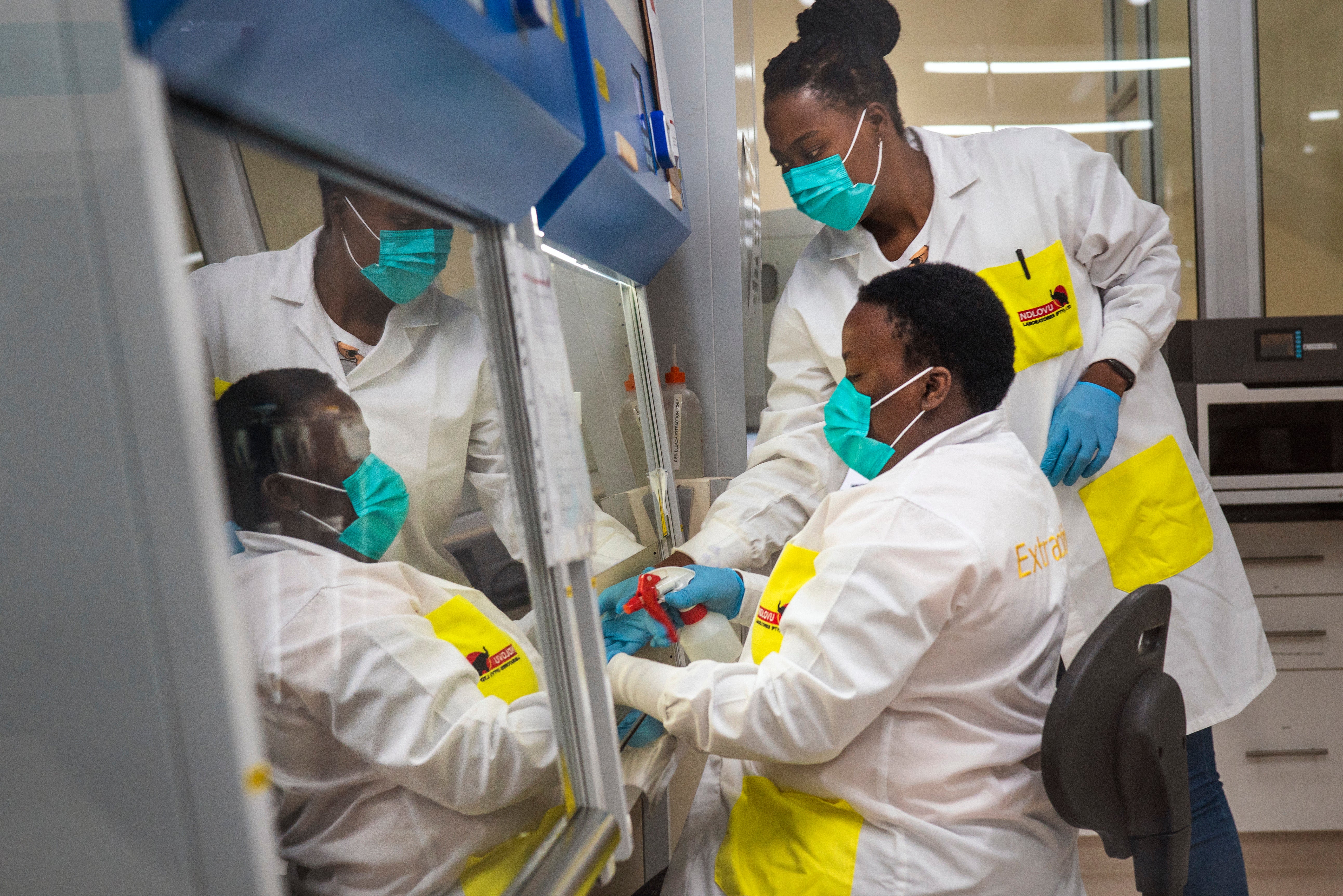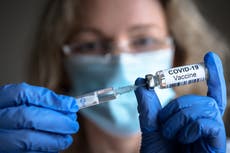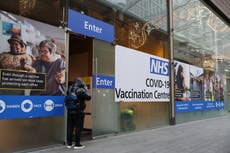South African doctors suggest omicron Covid is milder and more contagious than delta
Dozens of one doctor’s omicron patients have shown milder flu or cold-like symptoms

Doctors in South Africa are seeing dozens of patients a day with the omicron variant of Covid who are not sick enough to be hospitalised.
The omicron variant first emerged in southern Africa last month, and medics and scientists there are saying that signs point towards it being fairly mild compared to the preceding delta variant.
Dr Unben Pillay is seeing dozens of patients a day but he has said that all of them are showing symptoms that are milder than those seen who came down with delta.
But he and other medics suspect that the omicron variant is more contagious and has been spreading faster than delta.
Omicron has been found to have more than 30 mutations in its spike protein, which are thought to enable it to evade natural and vaccine immunity, and make it more infectious than delta.
Dr Pillay said about his omicron variant patients, which also include older people and those with existing health issues: “They are able to manage the disease at home.
“Most have recovered within the 10 to 14-day isolation period.”
Dr Pillay practices in the Gauteng province – South Africa’s most populous region with 16 million people, as it includes the largest city Johannesburg, and the capital Pretoria.
The province saw its number of new Covid cases rise by 400 per cent in the first week of December, and testing shows that omicron is responsible for more than 90 per cent of them, according to health officials.
Dr Pillay has said that his delta variant patients during the last wave of the coronavirus pandemic had trouble breathing and lower oxygen levels, and that “many needed hospitalisation within days”.
His omicron patients have milder, flu-like symptoms, such as body aches and a cough, he said.
In the weeks since omicron was first reported in southern Africa, doctors have reported similar symptoms in patients.
South Africa’s National Institute for Communicable Diseases said that only about 30 per cent of people hospitalised with Covid in recent weeks have been seriously ill, less than half the rate as during the first weeks of previous waves of the pandemic.
The average hospital stay has become shorter, from eight days down to about 2.8 days.
Three per cent of hospitalised Covid patients have died recently, a drop from about 20 per cent during earlier outbreaks.
Willem Hanekom, director of the Africa Health Research Institute, said, citing the national institute’s figures and other reports: “At the moment, virtually everything points toward it being milder disease.
“It’s early days, and we need to get the final data. Often hospitalisations and deaths happen later, and we are only two weeks into this wave.”
Last month, Dr Angelique Coetzee – the South African doctor who first raised the alarm over omicron – had told the BBC that omicron patients she had seen had also experienced what she described as “extremely mild” symptoms.
Meanwhile, the number of new cases continues to rise. South Africa confirmed 22,400 new cases on Thursday and 19,000 on Friday, up from about 200 per day a few weeks ago.
The new surge has infected 90,000 people in the past month, health minister Joe Phaahla said on Friday.
He added, citing studies that say omicron has caused 70 per cent of new cases across South Africa: “Omicron has driven the resurgence.”
Caution is being urged until more information about omicron is known.
In the UK, Christina Marriott, chief executive of the Royal Society for Public Health, has advised people with mild symptoms – especially those living and working around people who are more vulnerable to Covid – to get tested as they could be misdiagnosing Covid as a cold.
Additional reporting by AP
Join our commenting forum
Join thought-provoking conversations, follow other Independent readers and see their replies
Comments




Bookmark popover
Removed from bookmarks